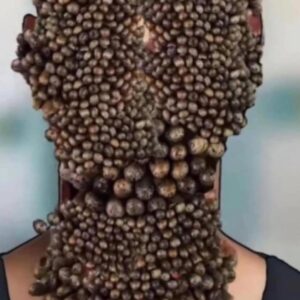Australian anatomy professor is advocating for the renaming of body parts that she deems “irrelevant and misogynistic” within the global health community.
Dr. Kristin Small contends that some common body parts, like the Achilles tendon and Adam’s apple, which are named after men despite being found in both men and women’s bodies, should be given new names.
Dr. Small wants the names of these body parts changed to reflect all people, not just the male half of the population, because they are neither gender- nor -specific. The professor envisions herself using her initiative to change the way anatomical language is used all over the world, beginning in countries like the US and Australia.
Dr. Kristin Small’s work extends beyond anatomy textbooks. She is a Queensland-born specialist obstetrician as well. She feels that an update is warranted because, as a female medical professional, she is aware of the lingo used in the field. She is spearheading the movement because of this, utilizing her position of academic authority to impart some unique knowledge to her students. She believes there are more anatomically accurate answers that apply to everyone on the planet rather than naming human body parts after “men, kings, and (male) gods.”
Dr. Small told the Courier-Mail, “I think we have a personal choice to decolonize our language, and these historical terms will fade out.”Dr. Small instructs her students to use the current names during exams, but she also explains to them why these names are acceptable substitutes for the “dead man’s name” that is currently in use. Outside of the classroom, she fights to change these anatomical terms so that everyone can benefit from them.
Dr. Nisha Khot, a council member of the Royal Australian and New Zealand College of Obstetricians and Gynecologists, concurs with Dr. Small that these names that are considered “dead man” will eventually become outdated.
According to her, “the young trainee doctors are generally eager to pick up the more appropriate vocabulary and are frequently surprised to learn the meanings behind some medical terms.”
The term “hysterectomy” is a frequent instance of misogyny in the field of anatomy and medicine. This phrase comes from the idea that women experience emotional hysteria more frequently than men because of a weakened constitution. The current name of the procedure comes from the days when doctors would remove a woman’s uterus in order to treat female hysteria.
Instead, Dr. Khot is one of the academics who invented the term “uterectomy.” This term is not only based on an accurate anatomical understanding, but it also does not imply that men are superior to women.
Although the conversation about change began in the field of women’s health, it is currently being discussed in the larger health community. Dr. Khot stated, “It just makes sense for the patients and the medics to use more understandable terms.”
Several common names for body parts, such as the Achilles tendon or the Adam’s apple, come from historical figures. The gynecological tool used for Pap smears, called a speculum, bears the name of an American slave trader.
Click below to watch more…
